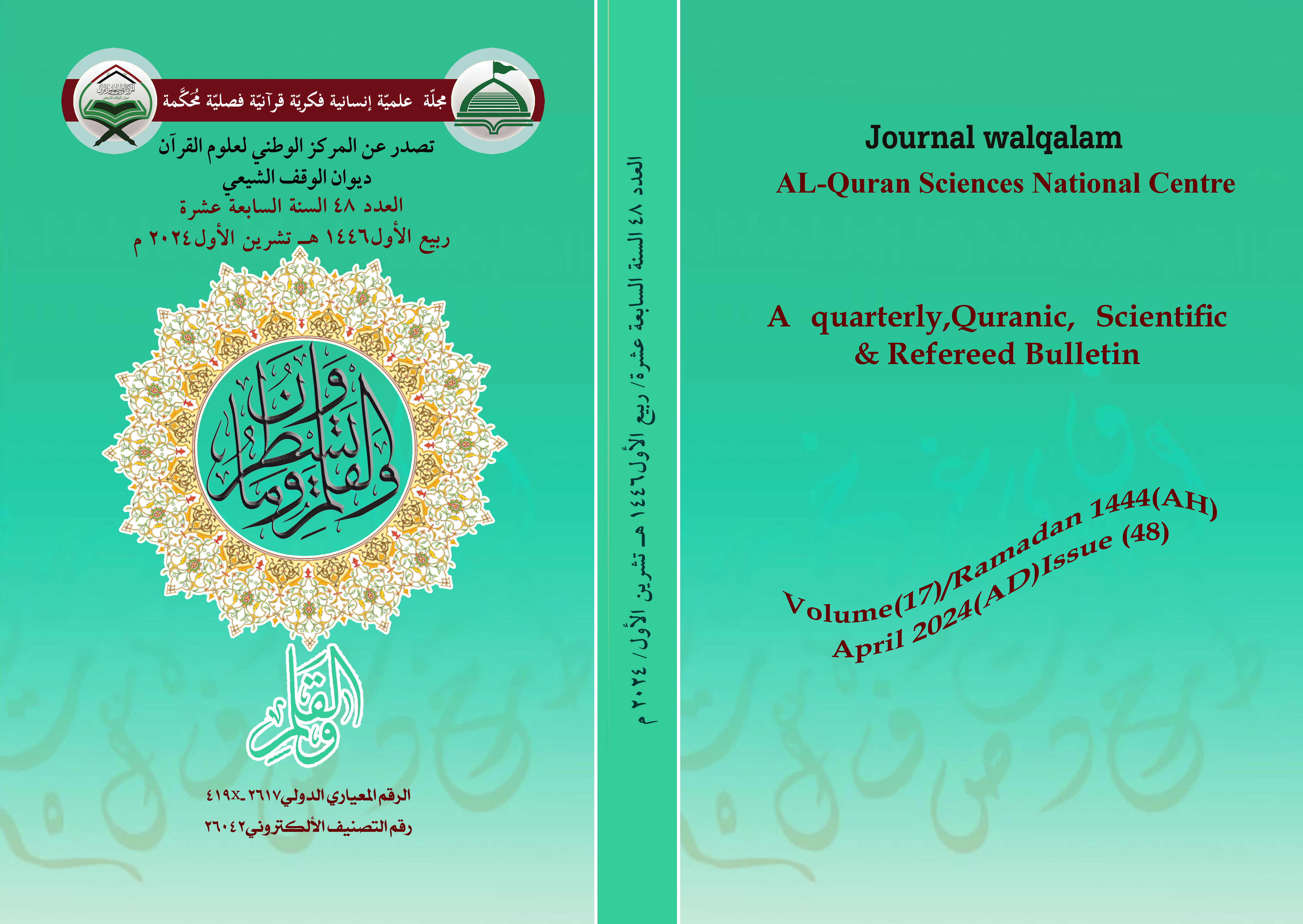Abstract
Abstract:
Modern medical scientists have raised the issue of “brain death”, and this issue has raised a real question about the Islamic religion’s opinion on it, at the level of considering it the point of achieving real death, without the heart stopping beating and the body stopping moving being important in that, especially since it is achieved after the death of the brain; then it is incidental to death, dependent on it, and does not achieve real death, and this understanding is not accepted by custom, and even rejected by it, such that they do not consider a person dead except after the heart stops beating, the body stops moving, and the signs of death known to custom appear.
Therefore, it is necessary for jurists to state their opinion on the issue, especially since death is the subject of many rulings - such as inheritance, the maturity of debt, the obligation of the eldest son to pay for his father, the waiting period for a wife whose husband has died, the invalidity of the agency of the deceased, the prohibition of the ruling of retaliation for a crime against the body of the deceased, and other rulings, such as the permissibility of removing life support devices from a person whose brain is dead in order to benefit from his organs, while jurists considered it a necessity that permits this, as if it depends on preserving a respectable life, and all of these rulings depend on determining the time of death. We must also know whether this issue is one of the topics that are left to custom to determine, or is it specific to specialists only, or has the Sharia determined its subject?
Modern medical scientists have raised the issue of “brain death”, and this issue has raised a real question about the Islamic religion’s opinion on it, at the level of considering it the point of achieving real death, without the heart stopping beating and the body stopping moving being important in that, especially since it is achieved after the death of the brain; then it is incidental to death, dependent on it, and does not achieve real death, and this understanding is not accepted by custom, and even rejected by it, such that they do not consider a person dead except after the heart stops beating, the body stops moving, and the signs of death known to custom appear.
Therefore, it is necessary for jurists to state their opinion on the issue, especially since death is the subject of many rulings - such as inheritance, the maturity of debt, the obligation of the eldest son to pay for his father, the waiting period for a wife whose husband has died, the invalidity of the agency of the deceased, the prohibition of the ruling of retaliation for a crime against the body of the deceased, and other rulings, such as the permissibility of removing life support devices from a person whose brain is dead in order to benefit from his organs, while jurists considered it a necessity that permits this, as if it depends on preserving a respectable life, and all of these rulings depend on determining the time of death. We must also know whether this issue is one of the topics that are left to custom to determine, or is it specific to specialists only, or has the Sharia determined its subject?
Keywords
Keywords: brain death
real death
signs of death
the soul leaving the body
Abstract
المستخلص:
أثار علماء الطبّ الحديث مسألة «الموت الدماغي»، فأثارت هذه المسألة تساؤلاً حقيقيّاً عن رأي الدين الإسلامي فيها، على مستوى اعتباره نقطة تحقّق الموت الحقيقي، دون أن يكون لتوقف القلب عن النبض، والجسد عن الحركة، الأهمية في ذلك، خاصة وأنها تتحقق بعد موت الدماغ؛ فحينئذ هي عارضة على الموت، متوقفة عليه، ولا تحقق الموت الحقيقي، وهذا الفهم لا يستأنس به العرف، بل ويرفضه، بحيث لا يعتبرون الإنسان ميتاً إلا بعد توقف القلب عن النبض، والجسد عن الحركة، وظهور علامات الموت المعهودة عند العرف.
وعليه لابد من الفقهاء بيان رأيهم في المسألة، خاصة وأن الموت موضوعٌ لكثير من الأحكام ـكالإرث، وحلول الدَيْن، ووجوب قضاء الولد الأكبر عن والده، والعدّة بالنسبة للزوجة المتوفى عنها زوجها، وبطلان وكالة الميت، ومنع حكم القصاص بالجناية على جسد الميت وغيرها من الأحكام، كجواز نزع أجهزة الإنعاش عن الإنسان الذي مات دماغُه للاستفادة من أعضائه، فيما اعتبره الفقهاء ضرورةً تجيز ذلك، كما لو توقف ذلك على حفظ الحياة المحترمة، وكلّها أحكام متوقفة على تحديد زمان الموت، كما لابدّ أنّ نعرف هل هذه المسألة من الموضوعات التي تُرك للعرف تحديدها أم أنّها مختصّة بأهل الاختصاص فقط، أم أنّ الشرع قد حدّد موضوعها؟
أثار علماء الطبّ الحديث مسألة «الموت الدماغي»، فأثارت هذه المسألة تساؤلاً حقيقيّاً عن رأي الدين الإسلامي فيها، على مستوى اعتباره نقطة تحقّق الموت الحقيقي، دون أن يكون لتوقف القلب عن النبض، والجسد عن الحركة، الأهمية في ذلك، خاصة وأنها تتحقق بعد موت الدماغ؛ فحينئذ هي عارضة على الموت، متوقفة عليه، ولا تحقق الموت الحقيقي، وهذا الفهم لا يستأنس به العرف، بل ويرفضه، بحيث لا يعتبرون الإنسان ميتاً إلا بعد توقف القلب عن النبض، والجسد عن الحركة، وظهور علامات الموت المعهودة عند العرف.
وعليه لابد من الفقهاء بيان رأيهم في المسألة، خاصة وأن الموت موضوعٌ لكثير من الأحكام ـكالإرث، وحلول الدَيْن، ووجوب قضاء الولد الأكبر عن والده، والعدّة بالنسبة للزوجة المتوفى عنها زوجها، وبطلان وكالة الميت، ومنع حكم القصاص بالجناية على جسد الميت وغيرها من الأحكام، كجواز نزع أجهزة الإنعاش عن الإنسان الذي مات دماغُه للاستفادة من أعضائه، فيما اعتبره الفقهاء ضرورةً تجيز ذلك، كما لو توقف ذلك على حفظ الحياة المحترمة، وكلّها أحكام متوقفة على تحديد زمان الموت، كما لابدّ أنّ نعرف هل هذه المسألة من الموضوعات التي تُرك للعرف تحديدها أم أنّها مختصّة بأهل الاختصاص فقط، أم أنّ الشرع قد حدّد موضوعها؟
Keywords
الكلمات المفتاحية: الموت الدماغي، الموت الحقيقي، علامات الموت، خروج الروح من البدن
